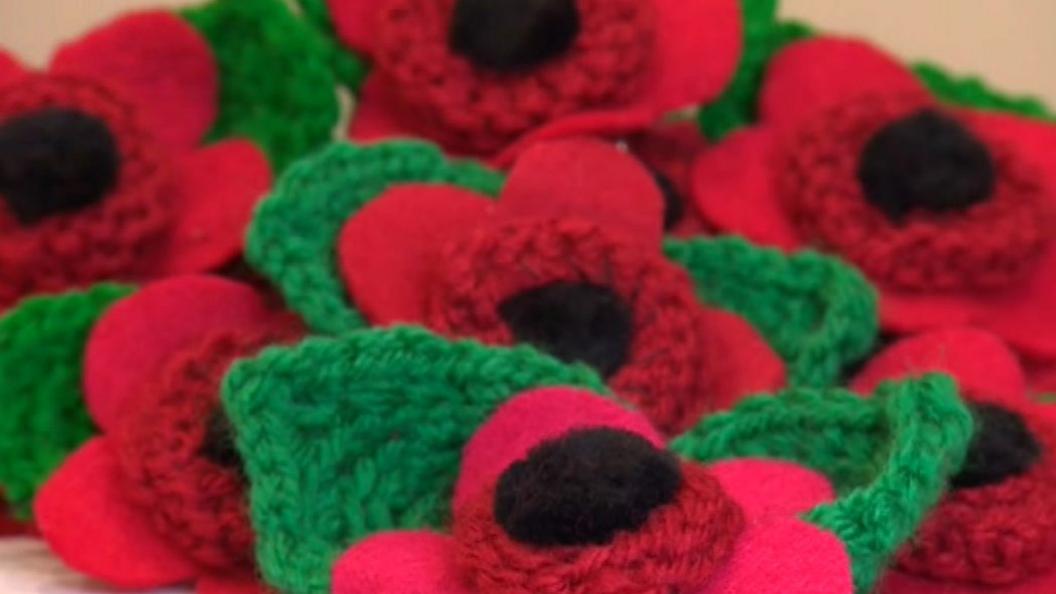Remembrance Day: Centenarian leads blind veterans
- Published
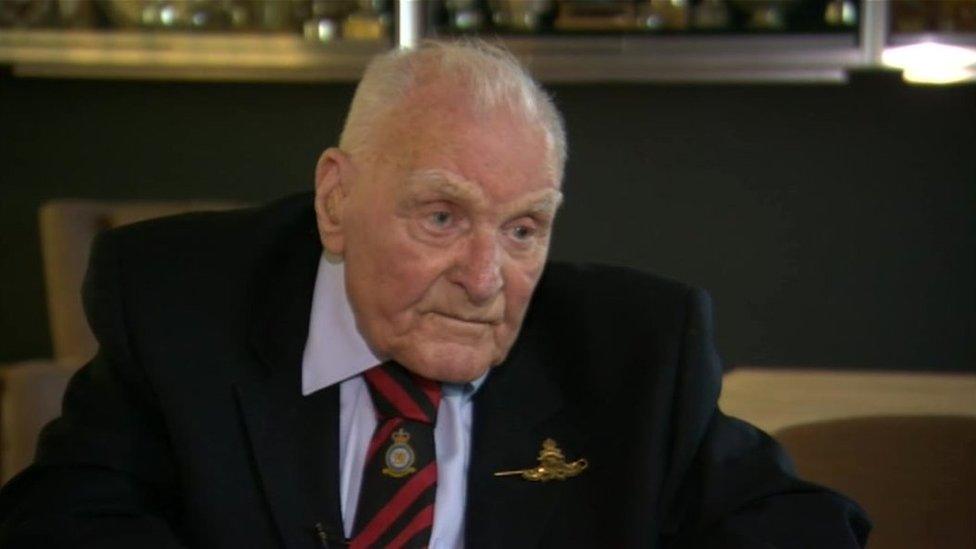
Ron Freer has been supported by the charity Blind Veterans UK for more than 70 years
A 100-year-old former Japanese prisoner of war has led a delegation of blind and partially sighted veterans to the Cenotaph.
Ron Freer, from Margate in Kent, laid the wreath at the Remembrance Sunday commemorations in London on behalf of Blind Veterans UK.
The charity, which provides veterans with training and rehabilitation, has supported him for more than 70 years.
Mr Freer lost his sight as a result of being in a Japanese POW camp.
Contaminated rice deaths
Mr Freer joined the army in 1931 and was posted to Hong Kong.
In 1941 the Japanese attacked the former British colony and, after 18 days of fighting, his garrison surrendered.
He contracted diphtheria while in the camp but was saved by a Japanese civilian doctor who smuggled medication into the camp.
Mr Freer was one of only six prisoners who received an injection, however, he lost his sight.
He said: "The Japanese brought in a bag of rice for each unit but only enough for one meal a day per man.
"Each man was given a scoop of rice but many were unable to eat it and, looking at the portion of rice, one could see mice droppings and insects.
"Disease soon broke out, resulting in many deaths."
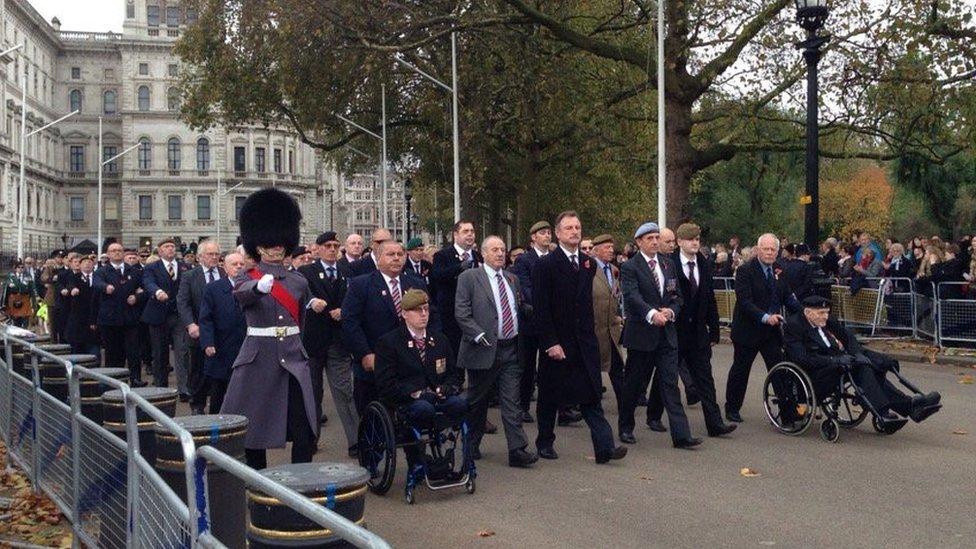
About 100 veterans marched to the Cenotaph for Blind Veterans UK, led by Ron Freer
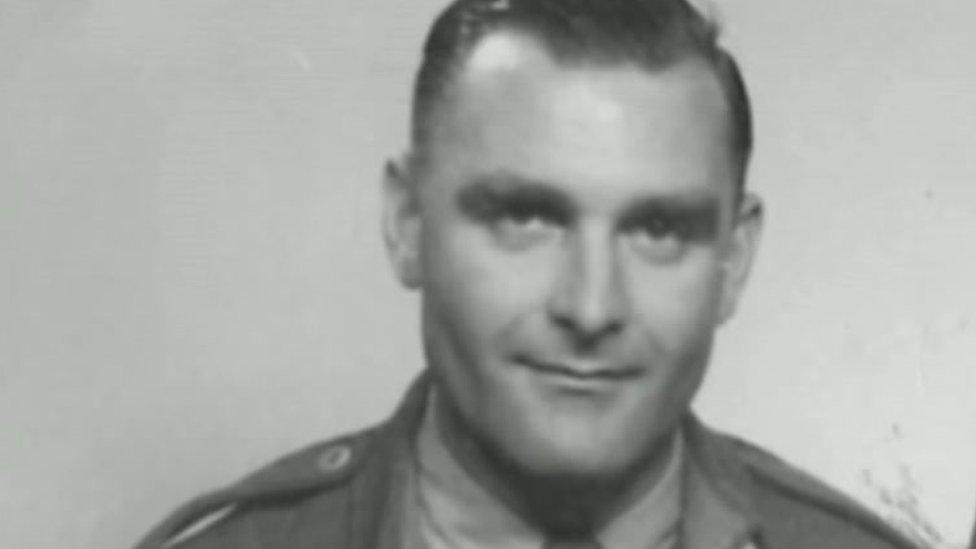
Mr Freer said many people died after eating rice contaminated with mice droppings
After returning to the the UK he was given help by Blind Veterans UK, then known as St Dunstan's, which is celebrating its centenary this year.
"I was given my confidence back bit by bit through training such as learning Braille.
"My main objective, as a man in his early 30s, was to find employment.
"After I married, I had the opportunity of opening a new post office and my wife and I continued to operate it for 25 years."
He will be the oldest member of the Blind Veterans UK delegation at the Remembrance Sunday commemorations.
Mr Freer said: Thousands, if not millions died, and I think 'what is the use of it all?'
"The victor and the Japanese - they both suffered, just the same."
- Published7 November 2015
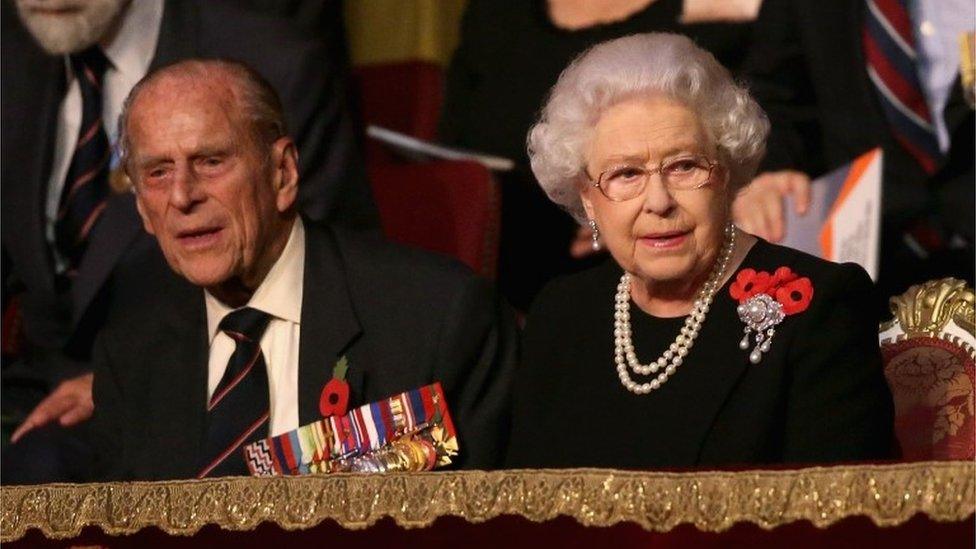
- Published7 November 2015
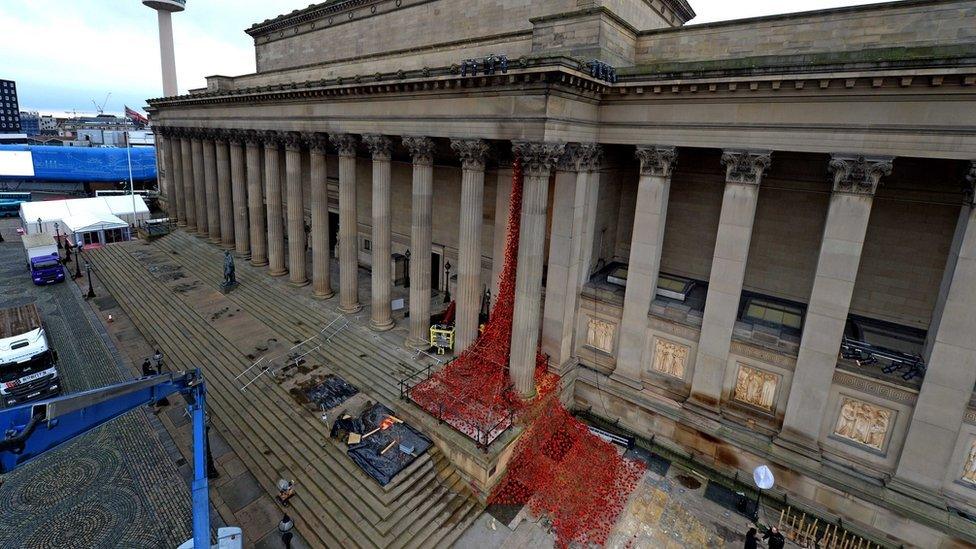
- Published6 November 2015
